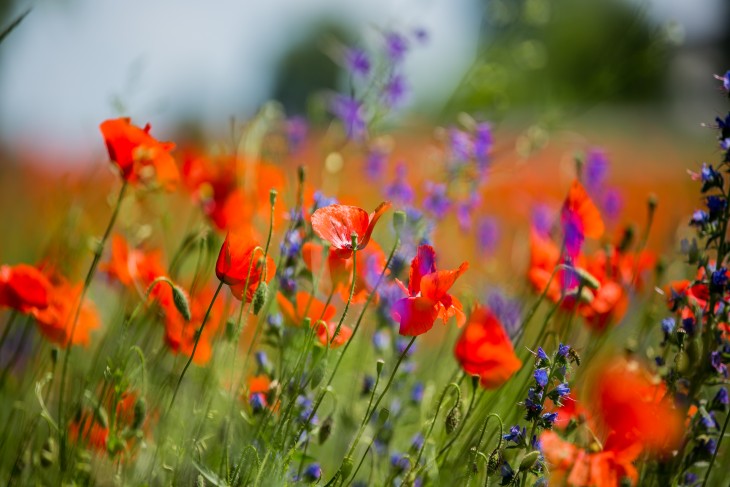
Rewilding for the Environment
At Enviroleak, we have an extra appreciation for the wild and un-spoilt nature of Ireland. Some might say it is because we enjoy lying back in meadows rather than mowing them. But we can assure you that it is for much more inspirational reasons. As our job regularly involves surveying and reinstating nature following accidental spills and leaks, we have more than a passing admiration of wild nature and its beauty. We fully embrace the current trend for rewilding gardens and public green spaces so that nature can flourish. This means that pollinators can do their important work easily and the bee population can survive and increase.
There are about 100 species of bee In Ireland. Unfortunately, 53% of these indigenous bee species are in danger and have declining numbers. Six species are critically endangered, and we have already lost two breeds of Irish bee. There are 12 types of bumble bees alone flying around the Irish countryside. Four of these are considered endangered and two are vulnerable. They need uncultivated, natural areas to thrive. Thankfully, many people are addressing the situation by rewilding their gardens, curbing the use of fertilizers and chemicals, and simply allowing things to grow. Native wildflowers might not have the full oomph of an imported sunflower, but crocus, lavender and dandelions are what our pollinators need to keep them buzzing with happiness. The National Biodiversity Data Centre warns against those tempting packaged wildflower seeds that can be purchased in supermarkets and garden centers. The difficulty is that nonnative plants are often mixed through the native seeds increasing the danger of bringing in invasive species, like Black Grass, and doing more harm than good to the environment. Plant these packaged wildflower seeds in a garden setting, if at all.
To create a wildflower, biodiverse meadow where your immaculately trimmed lawn used to be, simply stop mowing and allow the native wildflowers such as vetch, self -heal, clovers etc. to flourish. If this is too much crazy abandonment for you, simply follow the example of most of Ireland’s County Councils and mark off certain wildlife areas. This might include biodiversity margins where you simply let nature get on with what she does best. A wild garden at the back of your property or a cordoned off area might be just the option if a move from manicured lawns and perfect grass is a step too far. The reduction of wildflowers nationally has contributed to the loss of bees as they use the pollen for protein and the nectar for carbohydrates. The bees also require food all year round so a diversity of plants is needed to keep the little pollinators alive and buzzing. To encourage diversity, do not spray, don’t cut plants till flowering has ended and allow the hedgerows to flourish. Semi natural grasslands can help filter and store water, give shelter to small invertebrates, animals, and ground nesting birds and, provided you can change your attitude to what constitutes a beautiful garden, they will bring you much pleasure too.
Bloom 2022, Ireland premier Garden Festival was dominated by examples of Irish native plants and dedicated to rewilding this year. Gold medal winner Sean Russell presented a 100 per cent native homage to rewilding in his dairy farm meadows. Sean would encourage more farmers to rewild and bring farmlands back to lush wilderness. Likewise, the UK Chelsea Flower Show 2022 awarded best in show to a Rewilding Britain Landscape Garden. It would seem that managed wild gardens are not only what the planet and the environment need, they are now at the very height of garden fashion. Here at Enviroleak, with our heightened sense of preservation and love of natural wildlife and fauna, we embrace the rewilding of Ireland. It is also good to know that if an accident should happen and oil leaks on to gardens and pasture, we have the know-how, the patience and the skill to advise and proceed with a full clean up, safe in the knowledge that nature will bloom again